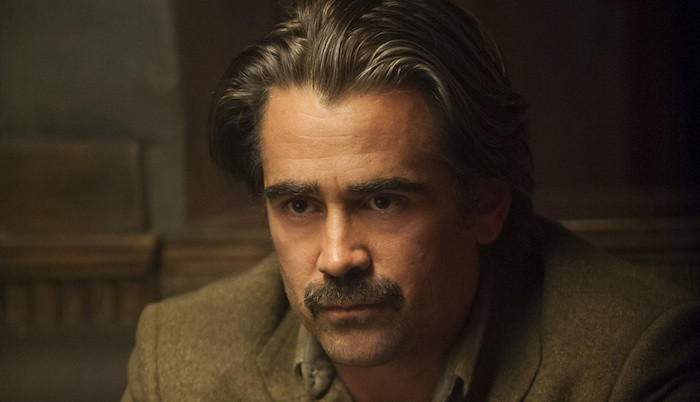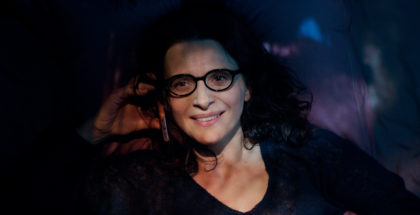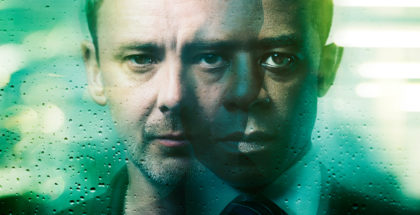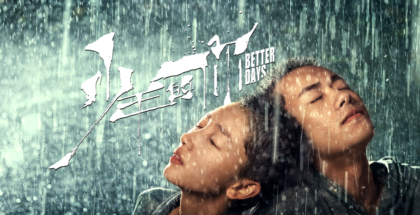UK TV review: True Detective Season 2, Episode 1
Review Overview
Performances
7Script
2Visuals
6David Farnor | On 21, Jun 2015
Already seen Episode 1? Read on for some additional, spoiler-filled comments.
“This is my least favourite life,” croons singer Lera Lynn in True Detective Season 2. It’s a slow, melancholic number, accompanied by shots of Colin Farrell downing whisky in a yellow-tinged bar, his moustache drooping under the weight of the world. The message is clear: thought True Detective Season 1 was bleak? Season 2 is even bleaker.
It’s impossible for the new season not to be compared to the first: HBO’s series, created by Nic Pizzolatto and directed by Cary Fukunaga, came almost out of nowhere with its gruesome crimes, brooding cops and apocalyptic philosophising, a combination that left the usually predictable detective procedural up in the air with thrilling unpredictability. The star power of Woody Harrelson and Matthew McConaughey only added to its quality.
With Fukunaga no longer at the helm, it’s easy to imagine Pizzolatto trying to outdo himself with his sequel: while the initial plan to focus on the secret occult history of America’s transportation system has been dropped, there’s still a feeling of the writer aiming to escalate everything as quickly as possible. Instead of two main characters, we have four. Instead of Louisiana, we have the sprawling city of Vinci, California.
Unfortunately, that sense of stretched-out scale also applies to the script, which rambles all over the place trying to fit everyone in. We’re introduced to Farrell’s detective, Ray Velcoro, who drops his son off at school with the look of a troubled divorcee. We then hop over to Officer Woodrugh (Kitsch), who has been suspended for supposedly doing not-very-Officer-like things. After that, there’s room for a quick whistle-stop tour of Detective Ani Bezzerides’ (McAdams) life, which is just as ugly.
These people are, needless to say, all entirely miserable. Together, they make McConaughey’s Rust Cohle look like Barney the Dinosaur. The only one with any vague semblance of happiness is Vince Vaughn’s criminal-slash-businessman Frank Semyon, who is tied up in a major project to bring a high-speed rail line to Vinci’s doorstep.
That intensely dark atmosphere was fascinating, when worn on the sleeve of a single person and allowed to slowly unfold; here, Pizzolatto appears so eager to reassure fans with more of the same that the show’s once measured pacing has gone out of the window. Not only does Ray have a bad relationship with his son, he also has an alcohol problem and anger management issues to boot. One unsubtle scene on a doorstep practically pummels the point home, just in case we haven’t realised. (Compare that to Harrelson’s character in the original, whose own issues were fully unmasked halfway through.) McAdams’ Ani, meanwhile, seems only to investigate cases that lead to exposition-filled squabbles with members of her damaged family.
The patchwork approach – rather than spending, say, two episodes on building up each pair of characters – emphasises Season 2’s aspiration of becoming a sweeping crime epic: a move from Season 1’s Se7en territory to something closer to Michael Mann’s Heat. Cinema veteran Justin Lin certainly directs it with enough flair to flaunt the noirish credentials, with overhead shots and swooping cranes that pick out the encroaching sunrise around tiny pockets of shadow. (The dead body that inevitably turns up is also satisfyingly disturbing.)
The performances are committed too, from Farrell’s intense stare to McAdams’ defeated determination. The fact that Ani could practically be played by a bloke is perhaps testament to how comfortably the actress squares off against her male counterparts, adopting their swaggering, swigging traits. Vaughn, like McAdams, seems to relish playing against type: his Frank makes for an effective villainous figure, nervously trying to keep control of things amid threatening news reports.
There is some promise that lies between these cast members, as they eventually start to collide, but the dialogue their interactions produce is far from the poetic highs of Pizzolatto’s last run. (“Never do anything out of hunger,” offers one exchange. “Not even eat.”) With so much stuff to include in 60 minutes, we find ourselves with less time to explore each moment in any depth. Words are almost blurted out before the camera cuts to someone else. As a result, the parade of burning problems (conversations are never less than heated) soon begins to feel like a shallow string of cliches; less literary and more pulp.
It is no coincidence, then, that the most interesting parts of this multi-strand narrative feature the fewest lines: Kelly Reilly’s Jordan Semyon emerges as the female with the greatest potential to redress the male-heavy balance of Season 1, the smart wife possibly pulling the strings behind her husband; Taylor Kitsch’s Woodrugh, on the other hand, provides an intriguing perspective on the hyper-masculinity we have come to expect from the show. In a sea of formulaic faces, his borderline anti-macho presence is one of the few impressively unpredictable things on display. (The other involves a car passenger seat.)
One familiar trope that does make a welcome return, though, is the show’s stylish opening title sequence: set to Leonard Cohen’s brooding Nevermind (from his 2014 album, Popular Problems), the new credits are another textbook display of how to communicate a sense of character through location. “I was not caught. I crossed the line,” the sombre singer intones, as highways cross each other at a spaghetti junction; a beautifully complex tangle of open-ended paths. The next seven episodes will have to do a lot of work to live up to that image.
As a generic TV thriller, this first hour isn’t entirely without merit. As an instalment in the True Detective franchise, this is currently our least favourite season.
True Detective Season 1 and 2 are available on Sky Box Sets. Don’t have Sky? You can also stream it on NOW, for £9.99 a month, with no contract and a 7-day free trial.
Where can I buy or rent True Detective online in the UK?
Additional notes (contains spoilers)
– What cheese do you use to hide a horse? Mascarpone. Sorry, we thought a joke might be needed to lighten the mood after that incredibly downbeat hour of TV.
– It’s often the ending of something that sticks in your mind, so it’s unfortunate that the climactic scene in which we see Ray and Frank chat in the bar – a welcome collision of Colin Farrell and Vince Vaughn – is almost undermined by Lynn’s music. She’s a great a singer, but the unsubtle melancholy of her number, coupled with the long pauses and meaningful stares, gets a bit much. You almost forget the discovery that Ray is under Frank’s corrupt wing because he asked Frank for information on his wife’s attacker, years ago, so that he could deliver justice.
– If that was all we learned about Ray this episode, it might have been easier to sympathise: by showing him not only getting angry at his son (who may, of course, not be his biological son) but also beating the crap out of another boy’s father, just because his son was bullied at school, Ray moves swiftly from “dodgy cop” to “unlikeable violent person with all the problems a fictional character could ever have”. A shame, really, because Farrell is fantastic when given a complex character to sink his teeth into.
– So, Ani. Sure she’s commendably as tough as nails, but the one-two punch of her family members feels just as overdone as Ray’s issues. Raiding a porn webcam lair because her sister’s there is one thing, but then giving us a follow-up scene in which she chats to her dad about her back-story immediately strains belief.
– Kitsch, then, is surprisingly deep, despite his blatant I-have-a-death-wish-and-a-love-of-adrenaline sequence on the motorbike. If he takes viagra to get an erection, does that mean he shouldn’t have been suspended for accepting sexual favours in exchange for not arresting a woman? Or is that condition a result of his suspension? Either way, he’s tortured in a way that’s different and new: at least, unlike Ani and Ray, he’s not just drinking his problems in a dingy casino.
– All the while, the dead city manager being driven around the city in a car is actually the most promising part of it all. The bizarre glimpses of a bird’s head on the passenger seat? Who knows? But the prospect of corruption further up the power ladder could prove an interesting task for our three cops to face. Presuming, of course, that they’re not all busy drinking in the bar.























